When will you next buy a mobile phone?
- Published
- comments
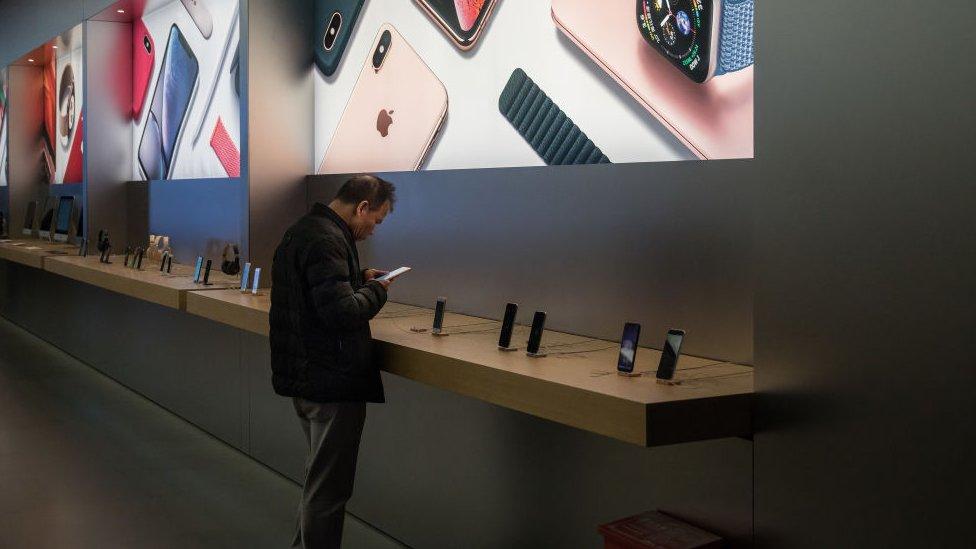
The days when people camped outside stores to get their hands on the latest smartphone may well be numbered, if recent sales figures are anything to go by.
Despite a dazzling array of new devices on display at the recent Mobile World Congress in Barcelona: phones that fold, phones with buttons, phones with enormous batteries, expensive phones, budget phones, 5G-ready phones… they aren't exactly flying off the shelves.
Samsung's overall operating profits were down by 60% year-on-year for the first quarter of 2019.
Apple slashed its iPhone sales forecasts at the start of the year, blaming a slowdown, particularly in China.
It has since repositioned itself to focus on services rather than gadgets, unveiling a new TV streaming platform, gaming portal and credit card at a star-studded event in March attended by Oprah Winfrey and the actor Reese Witherspoon - with not a new device in sight.
WATCH: Apple announces new services
Sales in China, the world's biggest phone market, were down 20% year-on-year in February 2019.
That's their lowest in six years, according to figures released by the state-affiliated research unit China Academy of Information and Communications Technology.
Sales had already been slowing in Europe, says Marina Koytcheva, technology markets analyst at CCS Insight, and elsewhere, with the possible exception of India and Africa.
"I don't think I have seen the market with such a negative outlook in the last 10 years," she says.
"I don't think we will ever again see the growth of five or 10 years ago."
There are several reasons why.
Innovation (or lack of)
The top-end handsets have increased in price dramatically in recent years. In 2017, Apple boldly smashed the $1,000 (£775) price point with the iPhone X, followed by Samsung with the Galaxy Note 8.
"In less than a year, the $1,000 phone has become entirely normal," noted Vlad Savov on tech website the Verge in August 2018, external.
Critics of the phone industry argue that at the same time, innovation has stalled. Each new handset might have a slightly better camera, slightly faster processors than the last, but for the average consumer, one black rectangle is pretty much being replaced by another.
In the last few weeks, both Huawei and Samsung have unveiled a new take on the black rectangle - the folding phone.
The Huawei Mate X folds out into an 8in device. It has split screen abilities, no notch and is 5G ready.
WATCH: First look at Huawei's folding phone
When it was unveiled, the audience gasped loudly at the 2,299 euros ($2,600; £1,996) price tag.
For those with that cash to spend on a new phone, is it exciting enough to break the global ennui?
"There will be a small number of big enthusiasts who will buy these phones but they will have to fall in price quite a lot to make an impact," says Marina Koytcheva.
"They will have to start selling in large numbers."
That will only happen if the device can prove itself useful.
"It's impressive innovation," says Ms Koytcheva .
"But why do you need it?"
And here's another potential red flag: Samsung has now delayed the launch of its Galaxy Fold following reports of broken screens.
Big screens, small pockets
The traditionally male-dominated tech sector has been accused of ignoring at least 50% of its target market - women - in not acknowledging that women's hands and trouser pockets are generally smaller than men's while flooding the market with ever larger devices.

When Apple announced it was discontinuing its iPhone SE, which has a 4in screen, Caroline Criado-Perez, author of a new book called Invisible Women, tweeted that the tech giant had "failed to update the only phone it makes that fits the average woman's hand size".
"Weak applause all round from my arthritic hands," she continued in the now-deleted thread on Twitter in September 2018.
5G future
5G - the next generation of mobile internet - could give phone sales the vital injection they need.
Promises made for it include being able to download a 15-minute video in one second, potentially making home broadband redundant and getting all your smart gadgets properly connecting with each other.
However, there are no 5G devices on the market yet.
They are on their way - although global security concerns threaten to derail the rollout schedule.
Chinese firm Huawei is one of the few manufacturers of the infrastructure required for 5G and there are concerns from several countries, led by the US, over whether it can be trusted.
Mobile provider O2 said Huawei makes up only 5% of its UK 5G infrastructure, but it would take time and money to remove it all if the government orders it to do so.
"In October 2018, we expected 5G to have some positive effect on the market this year," says Marina Koytcheva.
"We thought it would support it, but 5G is coming more slowly than we hoped."
Phone freedom
And finally - a growing number of people are choosing to step away from their phones altogether.
Last year, France introduced strict rules around the use of smartphones in schools, banning them for all pupils under the age of 15.
Apple, Google and Facebook also released tools that show you the extent of your screentime - a move which was greeted with amused horror, and some criticism.
"It's like locking an alcoholic in a booze cupboard and then helping them count how many bottles they've consumed," said Catherine Miller, director of policy at the think tank Doteveryone.
The phone industry's response to this desire to detach has been to unleash so-called companion phones - smaller handsets with more basic functions, designed to keep people connected without keeping them hooked.
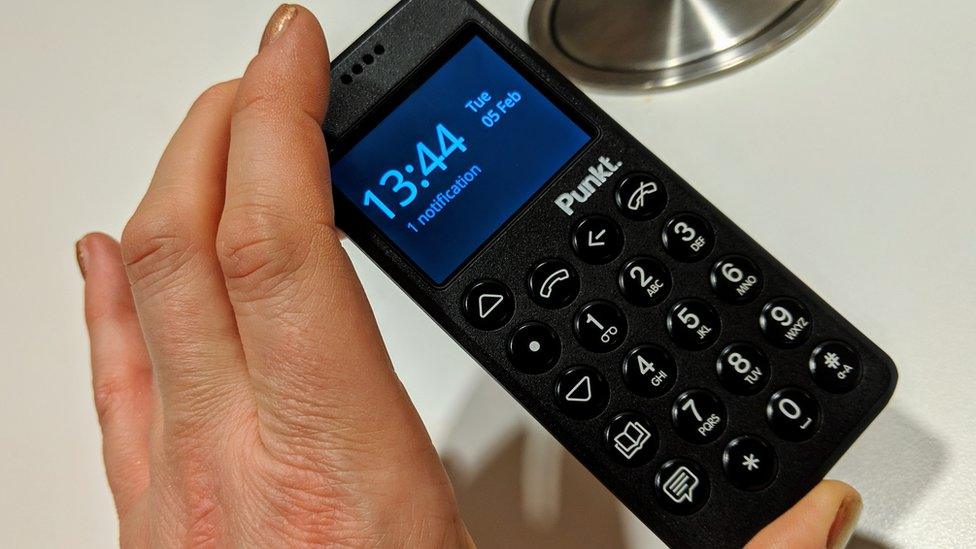
The Punkt phone is one example of a companion device
Now whether the solution to you spending less time on your big phone involves you buying a smaller phone is perhaps debatable but it shows the industry is at least listening, having devoted years to producing devices specifically designed to maintain our interest.
Marina Koytcheva thinks the smartphone market is ultimately stabilising after a frenzied few years but predicts that 2019 is going to be "a difficult year".
"Yearly sales of 2 billion mobile phones seemed so close just a few years ago, but might become a distant dream for the industry," she wrote in a report on declining sales, external.
"Our new five-year outlook is for 1.9 billion units on an annual basis until 2023."
- Published27 February 2019
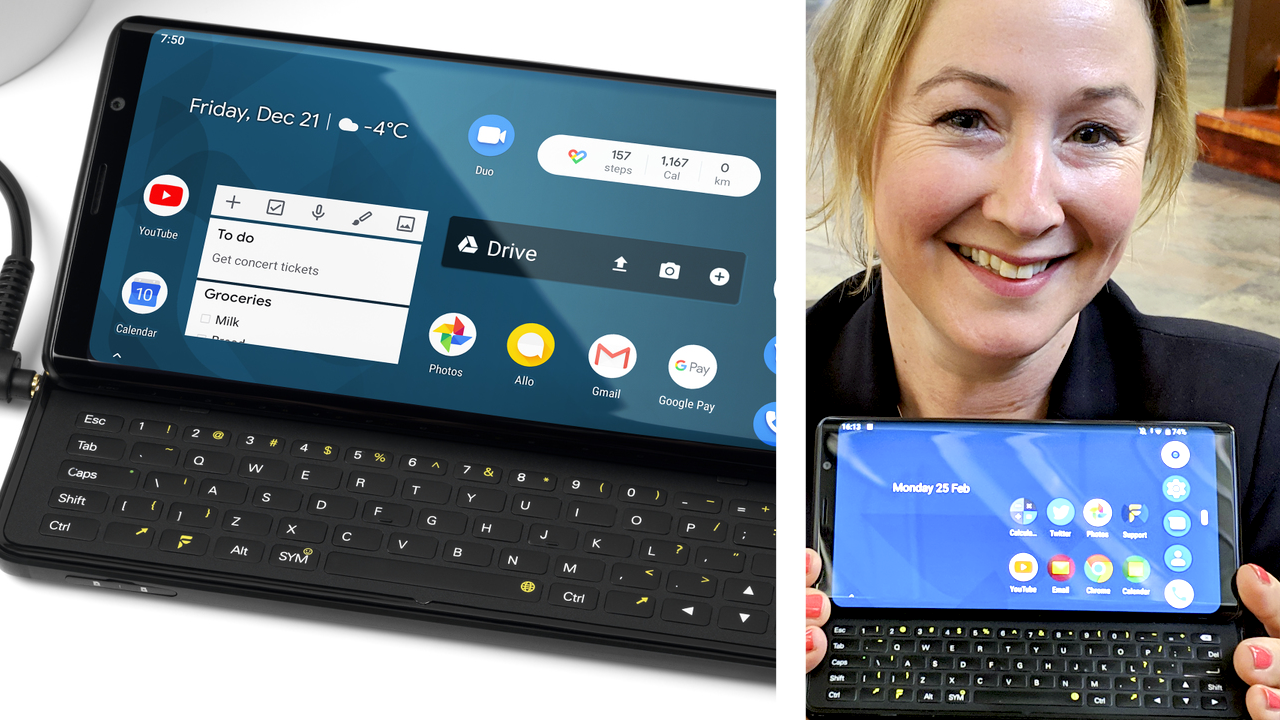
- Published25 March 2019

- Published27 February 2019
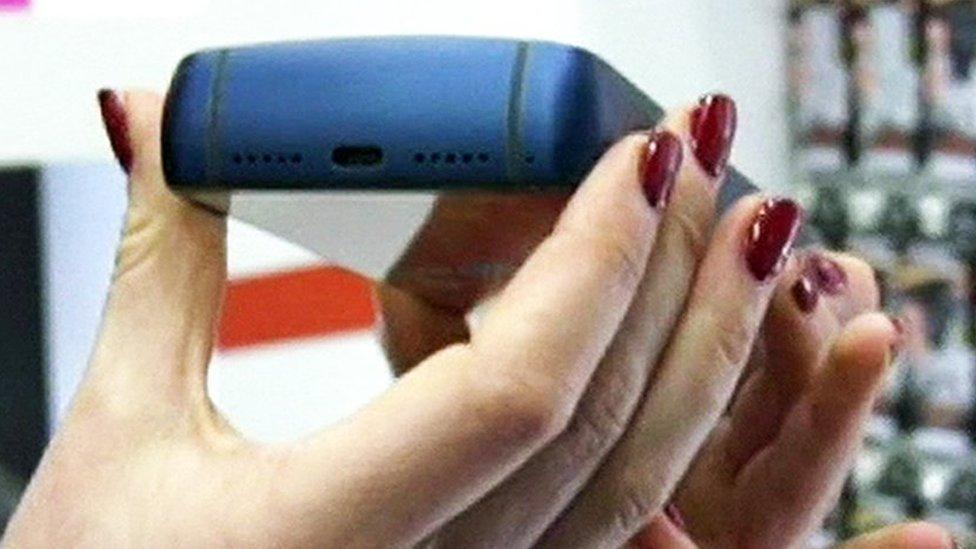
- Published24 February 2019
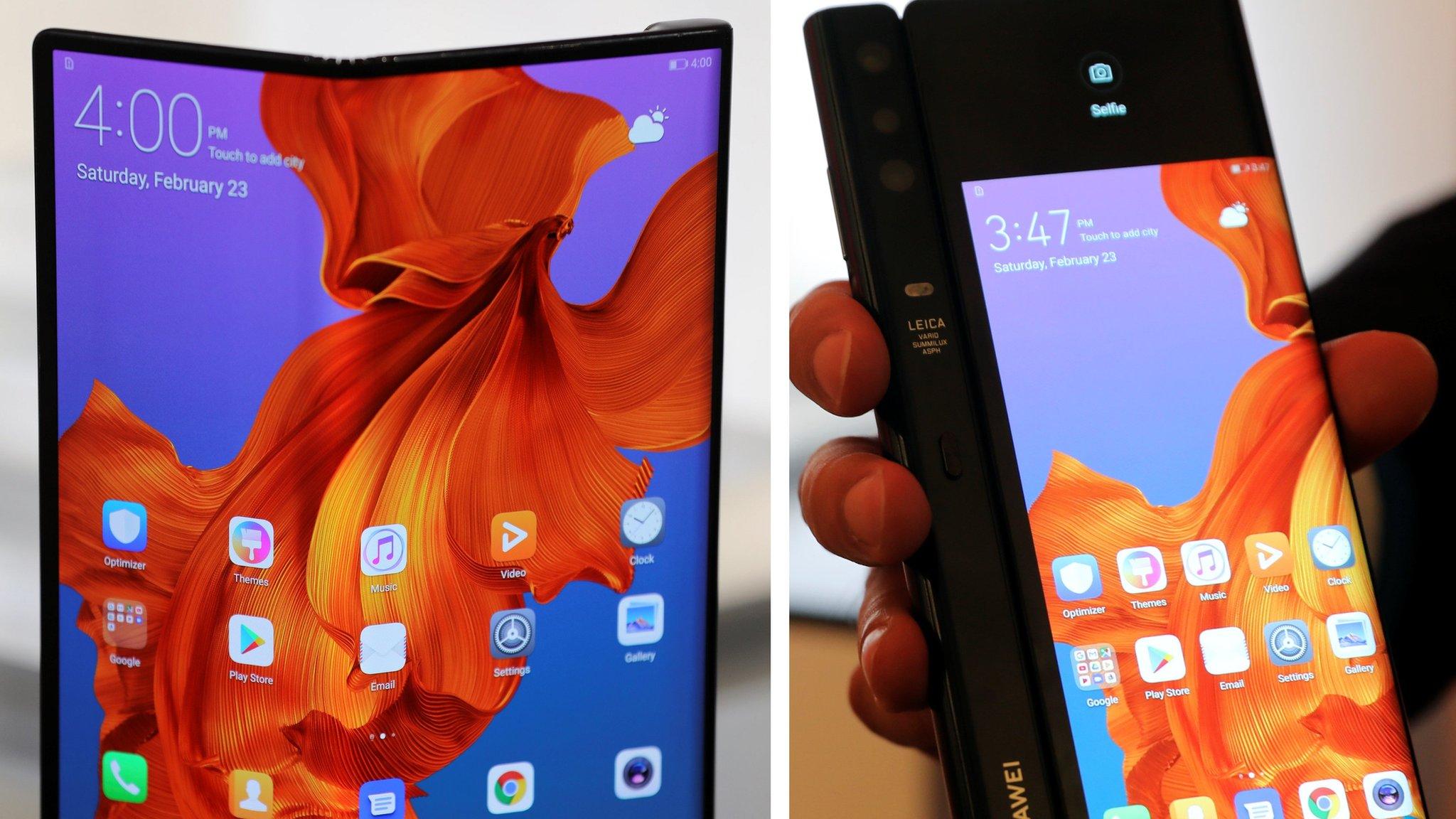
- Published26 December 2018
